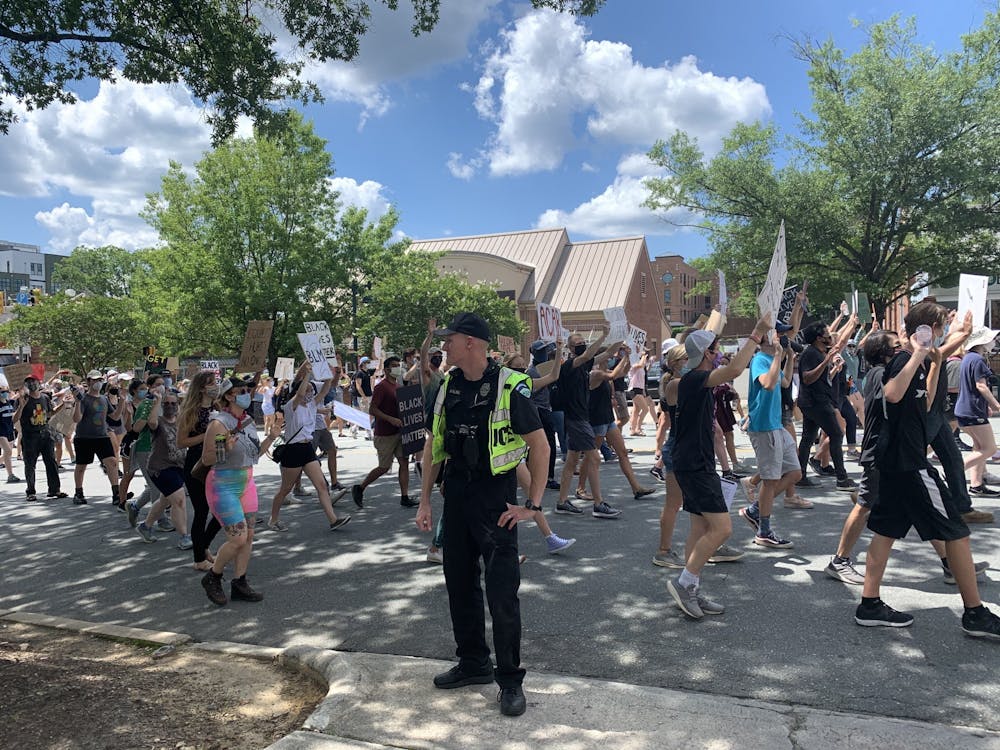Following nationwide protests against police brutality and calls by activists for police reform, the idea of defunding the police has begun to receive mainstream attention, leading cities across the country to reevaluate their police budgets.
Sudhanshu Handa, a professor in UNC's public policy department specializing in social and inequality policy, said the idea behind defunding the police is to move resources from police departments to social services that have tools to deal with situations in ways police are not equipped.
“The idea is that it doesn’t literally mean zero police," Handa said. "The first step is to take a hard look at the budget of the police versus other services."
Frank Baumgartner, a professor in the Department of Political Science, said with the current police system in most cities, police are called for a large breadth of incidents, many of which they are not trained for or do not have the tools to handle.
“One of the issues with the police is that their tools include handcuffs, jail time and a gun, and sometimes those just aren’t the tools that we need for every problem," Baumgartner said. "The police have become the go-to agency to call to fix any problem, and that’s not always appropriate."
Baumgartner added that the idea of defunding the police is to put money into organizations or services that are better equipped to handle these situations.
“Even within police departments, I think there is concern that the police should not be the agency that gets called on for every circumstance for our lives, in particular for mental health circumstances, drug addiction,” Baumgartner said. “Sometimes it is appropriate, like if your house has been robbed, you call the police, because they’re the only appropriate group to call, but if your son is having a drug or alcohol problem, it would be nice if you could call an alcohol treatment specialist and have them come help you with that problem.”
Chris Blue, chief of the Chapel Hill Police Department, said even though he trains his officers to be compassionate, he agrees police may not be the best equipped to handle some calls, like those related to homelessness.
“Regardless of if the police budget changes in the future, we need to put money into social services that have been underfunded in the past because they do serve a great need for our community,” Blue said.




